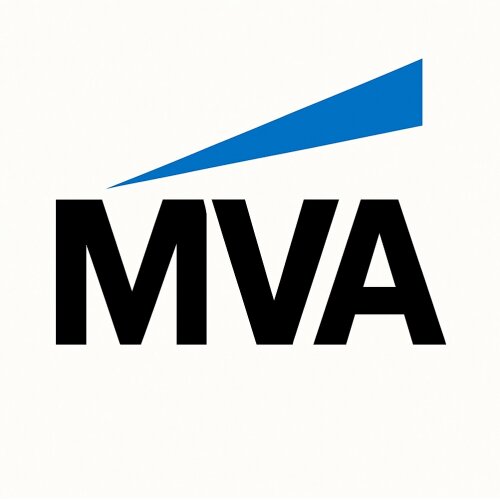Best Lawyers in South Africa
Share your needs with us, get contacted by law firms.
Free. Takes 2 min.
Or refine your search by selecting a city:
List of the best lawyers in South Africa
South Africa Legal Questions answered by Lawyers
Browse our 36 legal questions in South Africa and read the lawyer answers, or ask your own questions for free.
- Family dispute
- Im asking on behalf of my parents. My grandmother had terminal brain cancer and before she fell completely ill she sold her house and gave my mother power of attorney. The money from the house was paid into my grandmother's account. That money went to any expenses my grandmother had... Read more →
-
Lawyer answer by Ascendance International Consulting (A-I-C)
Thank you for sharing the details of your situation. It sounds like your mother acted in a responsible manner by using the funds for your grandmother’s care and medical expenses, which is a common use of power of attorney. That...
Read full answer - If someone in a hearing wrote things on a document and made a booklet for everyone to see and defamed my character so HR and managers can see
- I, [name removed], was called for a dismissal hearing but a booklet of documents was compiled and there was a document typed out that stated "please help her she is not mentally stable and has a small boy to care for and didn’t have any family in Bloemfontein, she (me)... Read more →
-
Lawyer answer by Ascendance International Consulting (A-I-C)
In South Africa an employer’s written statement that you “are not mentally stable” and that “pills will not help you” can be used to justify dismissal, but the Labour Relations Act (Act 66 of 1995) and the Code of Good...
Read full answer - Can I open a civil lawsuit against someone for defamation of character and do I have enough evidence?
- Good afternoon, I have been involved in a family dispute since last year November, claiming I have disrespected someone within the family (to my knowledge, I have not) and no one is willing to tell me what it is that I supposedly did. In the meantime, I have been called... Read more →
-
Lawyer answer by Ascendance International Consulting (A-I-C)
In most jurisdictions a defamation claim can succeed only if (1) a false statement of fact about you was communicated to at least one third‑party, (2) the statement was “published” (i.e., shown to others in the WhatsApp family group counts...
Read full answer
South Africa Legal Articles
Browse our 16 legal articles in South Africa written by expert lawyers.
- Business Rescue Proceedings in South Africa for Directors
- Business rescue is a formal rehabilitation process designed to save "financially distressed" companies from liquidation. A general moratorium is triggered immediately, providing legal protection against creditor claims and asset seizures. The Business Rescue Practitioner (BRP) takes full management control of the company, effectively displacing the board's autonomous authority. Directors face... Read more →
- South Africa POPIA Compliance Checklist for Global Firms
- International firms must comply with POPIA if they process personal information within South Africa or use automated or non-automated means situated in the country. Compliance is built upon eight specific conditions, ranging from accountability to data subject participation. Every organization must appoint and register an Information Officer with the South... Read more →
- Consumer Protection Act Guide for South Africa Home Buyers
- The Consumer Protection Act (CPA) applies only to property sold by developers or investors in the ordinary course of their business, not to private sales between individuals. Developers cannot use the "voetstoots" (as-is) clause to escape liability for latent defects under the CPA. Buyers have a statutory right to receive... Read more →
Top Law Firms in South Africa - Find the Right Legal Partner for Your Case
Choosing a law firm can feel overwhelming, especially in complex legal environments like South Africa’s. Whether you’re dealing with a cross-border transaction, a family matter, or an urgent dispute, finding a qualified, responsive, and experienced legal partner is key. This page helps you explore and connect with reputable law firms across South Africa-from major commercial hubs to regional centres.
All firms listed here have been reviewed and verified. You can filter by city, language, area of law, or budget to match your needs with the right team of professionals.
Why trust Lawzana when searching for a law firm in South Africa?
Legal matters often carry high stakes. That’s why Lawzana helps simplify the search process-especially for those hiring a lawyer for the first time or working across borders. Here’s what sets this page apart:
- Verified listings only: All firms are registered with the Legal Practice Council of South Africa.
- Clear practice areas: Easily identify which firms focus on corporate law, family law, litigation, or more specialised areas.
- Client-reviewed: See what others have said about the firm’s responsiveness, professionalism, and outcomes.
- International support: Many firms serve both local and foreign clients, with multilingual staff and experience in cross-border cases.
Whether you’re an entrepreneur, in-house counsel, investor, or private individual-Lawzana helps you make an informed decision with confidence.
What types of legal services do top firms in South Africa provide?
Leading firms in South Africa typically operate as full-service practices, or they specialise in high-demand fields. These are some of the most common areas they support:
🔹 Corporate & Commercial Law
- Company formation and governance
- Mergers and acquisitions (M&A)
- Joint ventures and shareholder agreements
- Contract drafting and risk review
🔹 Dispute Resolution & Litigation
- High Court litigation
- Arbitration and mediation (domestic and international)
- Debt recovery and enforcement
- Urgent interim relief applications
🔹 Employment & Labour Law
- Employment contracts and disciplinary procedures
- Labour disputes at the CCMA or Labour Court
- Retrenchment processes
- Employment equity and workplace policies
🔹 Property & Real Estate
- Conveyancing and title transfers
- Lease agreements and landlord/tenant disputes
- Zoning, subdivision, and land use
- Property-related litigation
🔹 Family & Estate Law
- Divorce, custody, and maintenance
- Antenuptial contracts and marital regimes
- Will drafting and estate planning
- Deceased estate administration
🔹 Immigration & Cross-Border Work
- Visa applications and appeals
- Corporate immigration for employers
- Business relocation and compliance
- Advice on dual citizenship or permanent residence
🔹 Regulatory, Licensing & Compliance
- B-BBEE compliance and structuring
- Financial regulatory advice (FSCA, FIC, etc.)
- Environmental, mining, and energy licensing
- Data privacy compliance under POPIA
What to expect when working with a South African law firm
South Africa has a well-developed legal sector, particularly in cities like Johannesburg, Cape Town, and Durban. Working with a local law firm-especially one familiar with your industry or region-can give you a major advantage.
Here are some common traits of top firms:
Language: Most legal services are offered in English, though some firms provide support in Afrikaans, isiZulu, or other South African languages.
Fee transparency: Legal fees are usually hourly, but many firms offer fixed fees for standard work. Success-based billing is available in certain areas (e.g. personal injury), subject to regulation.
Client communication: Expect regular updates and clear timelines. Most firms use email, phone, and virtual meetings to keep you informed-especially for overseas clients.
Professional standards: Attorneys and law firms must be registered with the Legal Practice Council. Many also hold additional certifications or belong to professional networks (e.g. IBA, LSSA).
Licensing & due diligence tips
Before engaging a firm, you can run through this quick checklist:
✅ Confirm that the firm or attorney is registered with the Legal Practice Council (https://lpc.org.za)
✅ Ask for a Certificate of Good Standing (issued upon request by the firm)
✅ Review the firm’s terms of engagement, including fee structure and billing cycle
✅ Clarify communication expectations and response times
✅ For cross-border matters, confirm the firm’s experience with foreign clients or international jurisdictions
Tips for international clients
South African law firms are used to working with clients from abroad, especially in industries like energy, mining, fintech, and property investment.
Here are a few things to keep in mind:
- Time zone: South Africa is GMT+2, well aligned with Europe and the Middle East.
- Legalisation: If you’re signing or submitting legal documents from abroad, you may need to have them apostilled (for countries in the Hague Convention) or notarised.
- Currency and payments: Most firms invoice in South African Rand (ZAR), though USD or EUR may be accepted on request. International payments should comply with exchange control regulations.
Frequently Asked Questions
💼 General legal services
Do I need a lawyer to open a business in South Africa?
Not always-but it’s recommended. For private companies, you can register directly through the Companies and Intellectual Property Commission (CIPC). However, for more complex structures, joint ventures, shareholder agreements, or foreign-direct investment, a corporate attorney ensures compliance and reduces future risk.
Can South African lawyers represent me in court if I’m based abroad?
Yes. You don’t need to be physically present to instruct a lawyer in South Africa. Power of attorney and digital communication allow most matters to proceed remotely. Some court proceedings may still require in-person representation, but your lawyer can handle those steps on your behalf.
What’s the difference between an attorney and an advocate?
Attorneys are general legal practitioners who handle client relationships, drafting, and case management. Advocates (similar to barristers) are typically briefed by attorneys for court appearances, particularly in higher courts. Some advocates hold the status of Senior Counsel (SC), denoting high professional standing.
Are there law firms that only work with corporate clients?
Yes. Some firms focus exclusively on business law-covering commercial transactions, compliance, and disputes for companies. These typically don’t take on individual or family matters. However, many full-service firms have both corporate and private-client departments.
⚖️ Legal system & process
How long do legal proceedings usually take in South Africa?
It varies widely:
- Simple contract review: 2-7 days
- Company setup with custom MOI: 1-2 weeks
- Property transfer: 6-12 weeks
- High Court civil case: 12-24 months, sometimes longer if contested
- Arbitration: Typically 6-12 months from filing to award
Urgent applications (e.g. interdicts) can be brought within days.
Can I represent myself in court?
Yes, this is called acting in person. However, it’s only advisable for small claims or administrative matters. In civil or criminal courts, especially in disputes involving contracts, family issues, or business interests, professional legal advice is strongly recommended.
Are South African judgments enforceable abroad?
Not automatically. Enforcing a South African judgment in another country depends on treaties, reciprocal recognition, and local court processes. If cross-border enforcement is likely, your lawyer can help draft the case or agreement accordingly.
💵 Fees & billing
What are typical legal fees in South Africa?
- Hourly rates: ZAR 2,000-6,500/hour for experienced attorneys
- Fixed/capped fees: Common for conveyancing, wills, or contracts
- Contingency fees: Allowed in some personal injury or debt recovery matters, capped at 25% of the award or double the usual fee (whichever is lower)
- Retainers: Often used by companies needing ongoing legal access
Always confirm whether fees are VAT-inclusive (VAT is 15%).
Can I get a quote before engaging a lawyer?
Yes. Most firms offer an initial consultation (sometimes free) and will provide a written quote or engagement letter outlining scope, fees, and terms.
What payment methods do firms accept?
Bank transfers are the most common. Some firms may accept card payments or international transfers. Confirm whether there are additional fees or requirements for non-residents.
🌍 International clients
Can a foreigner hire a South African law firm?
Yes, there are no restrictions. Foreign individuals, companies, and organisations can freely retain South African legal counsel.
Is it possible to sign legal documents electronically?
In many cases, yes. South Africa recognises electronic signatures under the Electronic Communications and Transactions Act. However, some documents (e.g. property transfers, court affidavits) may still require physical signing or notarisation.
Do I need to legalise documents for use in South Africa?
Yes, for documents issued outside South Africa, legalisation is often required. Most countries follow the Hague Apostille Convention. If not, notarisation and embassy authentication may be needed.
How do I pay legal fees from overseas?
You can pay via international wire transfer. South African firms may need to comply with exchange-control regulations, so it's best to check in advance and ask for a formal invoice with bank details.
🧾 Specific legal situations
Do I need a lawyer to buy property in South Africa?
Yes. A licensed conveyancer (a type of attorney) is required to manage property transfers. The seller usually appoints the conveyancer, but buyers can request their own legal support to review contracts and perform due diligence.
Can a lawyer represent both sides of a transaction?
Only in non-contentious matters, and only if there’s written, informed consent from both parties. This is common in some real estate or business sale agreements, but strict rules on conflict of interest apply.
How can I check if a lawyer is licensed and in good standing?
You can search the Legal Practice Council register at https://lpc.org.za or request a Certificate of Good Standing directly from the lawyer or firm.
Can I switch law firms during a case?
Yes. You’re free to change your legal representation at any time. You’ll need to settle any outstanding invoices with your current lawyer and formally instruct your new representative.
🆘 Legal assistance & alternatives
Can I get legal aid or free legal help?
Yes. Legal Aid South Africa offers free legal assistance to individuals who meet specific income and case-type criteria. University law clinics and some NGOs also provide support, especially in family, housing, and employment matters.
What if I have a complaint about a lawyer or firm?
You can file a complaint with the Legal Practice Council, which regulates all attorneys and advocates in South Africa. Firms also have internal complaints processes you can pursue first.
What if I can’t travel to South Africa?
Most firms accommodate remote clients using email, video conferencing, e-signatures, and couriered documentation. Many legal matters can be handled entirely online, especially with proper notarisation and power of attorney.
What to do next
- Define your legal need - Is it transactional, urgent, or ongoing?
- Filter firms - Use the tools on this page to narrow by practice area, budget, or location.
- Reach out - Contact the firms directly through their profiles to request an initial consultation or quote.
- Compare your options - Consider response time, communication clarity, and how well they understand your issue.
- Start with confidence - Once you’re ready, sign the engagement letter and begin your legal process with peace of mind.
Final thoughts: Whether you're protecting your business, resolving a dispute, or planning for the future-having the right legal partner in South Africa makes all the difference. Let this page guide your search and help you move forward with clarity and confidence.
Lawzana helps you find the best lawyers and law firms in South Africa through a curated and pre-screened list of qualified legal professionals. Our platform offers rankings and detailed profiles of attorneys and law firms, allowing you to compare based on practice areas, experience, and client feedback.
Each profile includes a description of the firm's areas of practice, client reviews, team members and partners, year of establishment, spoken languages, office locations, contact information, social media presence, and any published articles or resources. Most firms on our platform speak English and are experienced in both local and international legal matters.
Get a quote from top-rated law firms in South Africa — quickly, securely, and without unnecessary hassle.
Disclaimer:
The information provided on this page is for general informational purposes only and does not constitute legal advice. While we strive to ensure the accuracy and relevance of the content, legal information may change over time, and interpretations of the law can vary. You should always consult with a qualified legal professional for advice specific to your situation.
We disclaim all liability for actions taken or not taken based on the content of this page. If you believe any information is incorrect or outdated, please contact us, and we will review and update it where appropriate.
Refine your search by selecting a practice area.
Accidents & Injuries
Banking & Finance
Bankruptcy & Debt
Business
Civil & Human Rights
Consumer Rights
Corporate & Commercial
Criminal Defense
Employment & Labor
Energy, Environment & ESG
Family
Immigration
Insurance
Intellectual Property
Lawsuits & Disputes
Media, Technology and Telecoms
Notary Services
Private Client
Real Estate
Browse law firms by city in South Africa
Refine your search by selecting a city.




































